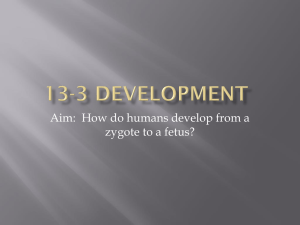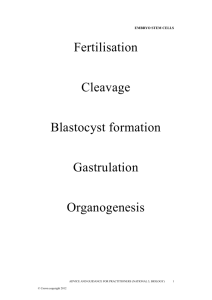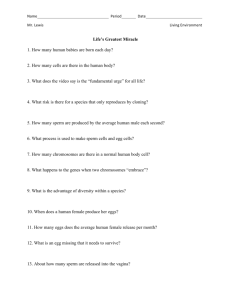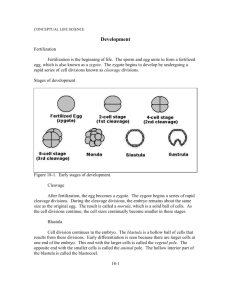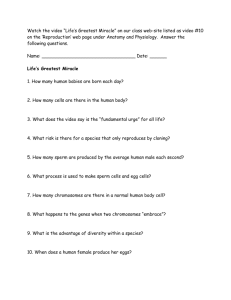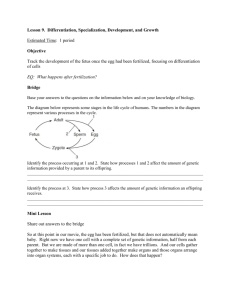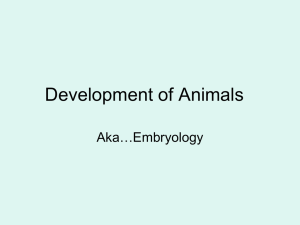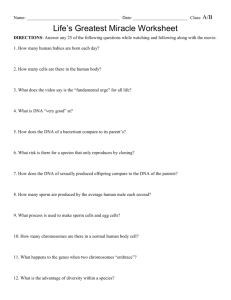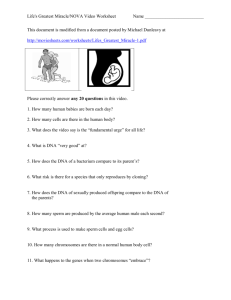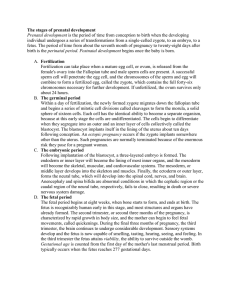Aim: How do humans develop from a
advertisement
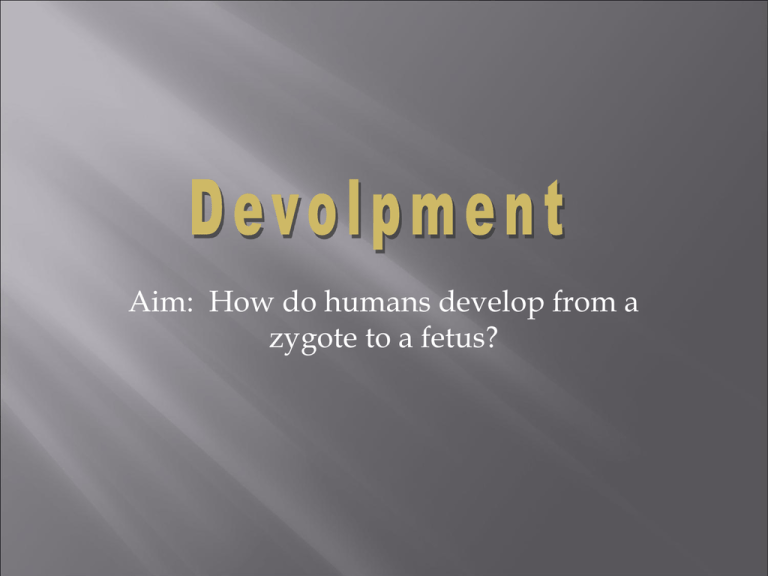
Aim: How do humans develop from a zygote to a fetus? Fertilization may occur within a few days of ovulation The fusion of the sperm nucleus and the egg nucleus result in a diploid zygote. Fertilization occurs in the _______________. In the first week after fertilization, the zygote undergoes a series of mitotic divisions known as cleavage. Cleavage produces many smaller cells within the zygote. Cleavage continues as the zygote moves through the Fallopian tube toward the uterus. When the zygote is a solid ball of cells, it is called a morula. By the time it reaches the uterus, the zygote is a hollow ball of cells called the blastocyst. The blastocyst attaches itself to the lining of the uterus in an event called implantation. Once the blastocyst has been implanted into the uterus, differentiation occurs. Differentiation (also called spcialization) is when the cells of the blastocyst develop into the various types of tissues in the body. Differentiation is caused by the activation of certain genes. The next stage of development is gastrulation. During gastrulation, three distinct cell layers form. The ectoderm The mesoderm The endoderm Development of Organs and Organ Systems ECTODERM MESODERM ENDODERM Nervous system Bones and muscles Lining of digestive tract Epidermis of skin, Blood and blood sweat glands, hair vessels and nails Lining of trachea, bronchi and lungs Reproductive and Liver, pancreas excretory systems
